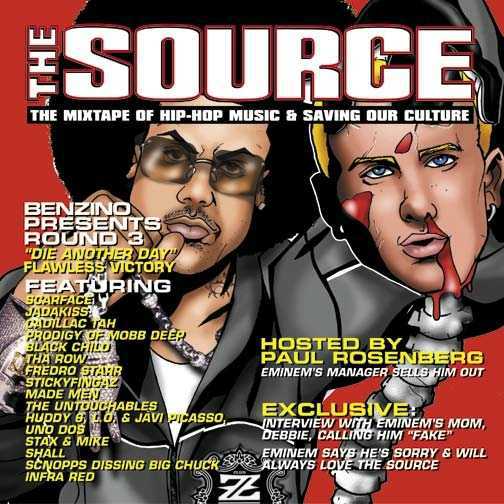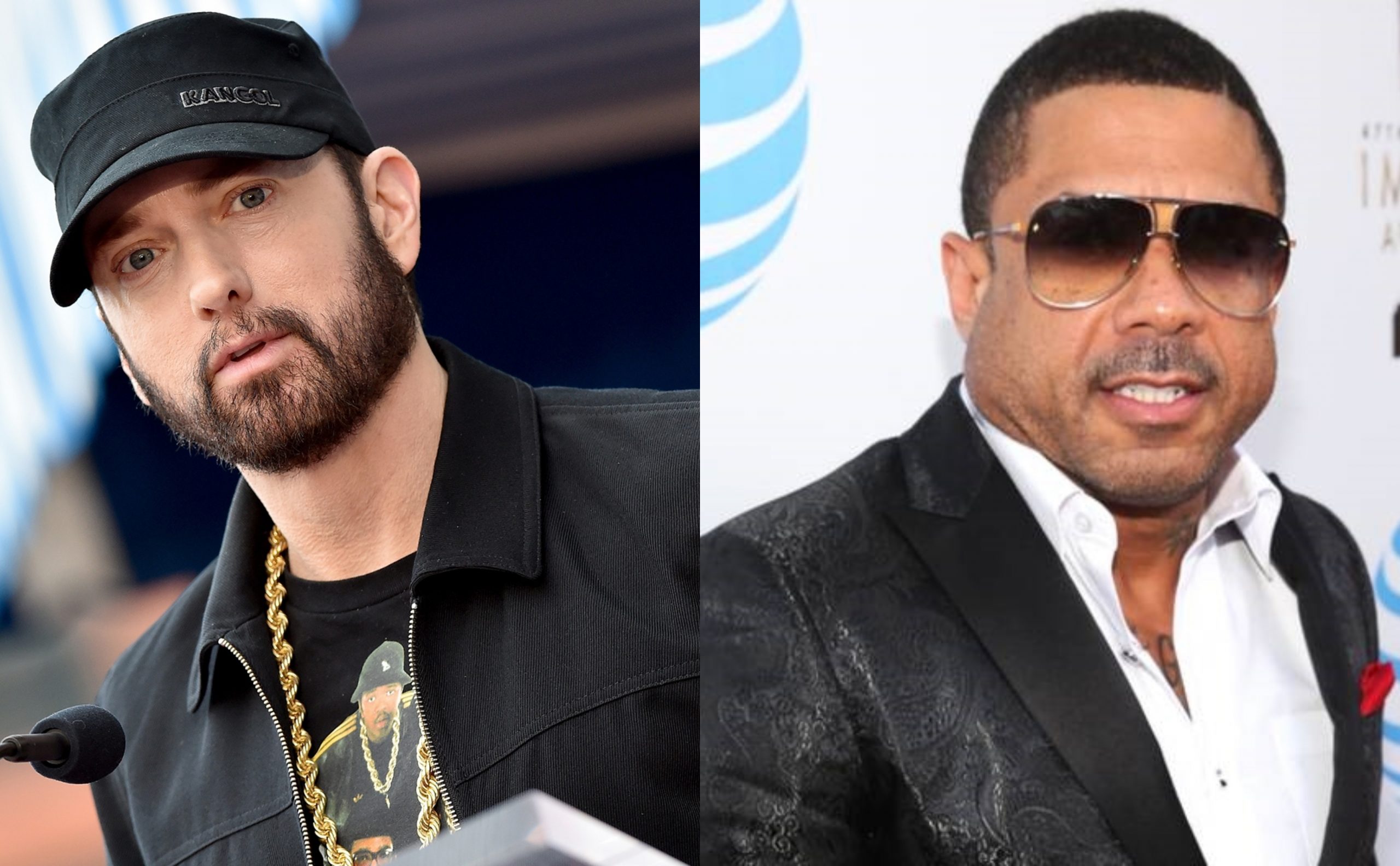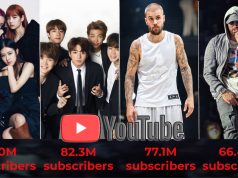Hindsight is a wonderful thing. Even if David Mays, until this day, believes that the vendetta his magazine got involved in was dedicated to a good cause and Eminem was not the target, he realises that there were better ways to take the stance and let Benzino take it to a personal level.
The founder of The Source defended his position again in the same interview on VladTV where he credited his magazine for giving Marshall the career and the record deal:
The Source discovered Eminem! The Source had Eminem on Unsigned Hype! Eminem is the first ever white person on the cover of The Source. Eminem wins lyricist of the year at The Source Awards in 1999 over some heavy competition. We helped launch Eminem’s career. We supported Eminem for those first few years. But by 2002, I think, this is when “8 Mile” was coming out, and this is when the mainstream media goes into overdrive. You know, “Eminem is the king of hip-hop! He is the greatest to ever do it”. They were just going crazy the way they were portraying him. That rubbed Benzino in a wrong way, and it had him thinking that this could be bad for hip-hop. Just like Elvis was used to change the trajectory of rock and roll music and cut out black folks. And then you’re seeing all these black-owned companies being targeted and wiped out. All these companies, Ruff Ryders, Roc-A-Fella, No Limit, Cash Money. They have dozens if not hundreds of employees on the payroll, many of whom just got home from jail and wouldn’t have a job anywhere else. They were impacting people, communities and families that had been dealing with generational poverty. These companies were flourishing in the late 1990s, but you blink, and by 2004 they’re gone. That’s partly from the FBI, partly from the music industry, the using the Internet and its impact on sales. So, we are in the midst of all that, and ten this Eminem thing is going crazy. [Benzino] saw that, he felt like this was bad, and he made a diss song on a mixtape. A little eight-line diss — nothing on a mixtape that hardly went out anywhere. In a matter of weeks after the mixtape got put out, we started getting phone calls: “Eminem’s in the studio, he’s already made three records dissing The Source and dissing Dave and dissing Benzino”.
They were going crazy. It became personal, and it was not meant to be personal. The issue was not about Eminem per se at that time because when it starts, those racist tapes don’t exist. Nobody knows about those tapes. We don’t know about those, nobody knows those. Those only surfaced a year down the line after the back and forth. Eminem comes out with songs dissing The Source. Benzino makes songs and videos dissing Eminem and going back and forth. And the magazine, you know, report on this stuff. I obviously took our side. I think getting personal wasn’t the right way to handle it. At least through the pages of the magazine. But it always felt like we were doing this for other reasons. We were trying to get the point about other things that ended up getting lost.
And a year down the line, these three white kids drive from Detroit to show up in my lobby. They were sitting out there for a couple of hours to try to get to see me. Finally, I get the message, and I bring them in, and they play me some of this music, the racist rap hour. Eminem and his group at that time, three other white guys made this whole tape with a lot of racist stuff on it. Of course, that was shocking to hear. At that point, we, as a magazine, as a journalistic entity, had an obligation to report that and put it out there.
There were some negotiations behind the scenes with Interscope trying to shut it down and get us not to put them out and bury them so nobody would know about it. But those didn’t go anywhere, and we published the information. They sued us in a federal court to stop us from putting it out. And we won a landmark copyright ruling where the judge allowed us to put out only a very small portion of the tape under what’s called fair use law. A lot of stuff that was on a tape never got out.
In retrospect, it got personal. And I shouldn’t have allowed the magazine to give an appearance of a personal agenda. Benzino was angry at the disses, he took it personally, so thinks got a little bit crazy. I wish it didn’t go that way.
Well, it truly was difficult to see this kind of stuff published by The Source as anything but a personal agenda, only lazily masked as a racial and political issue.

Watch the segment below:












